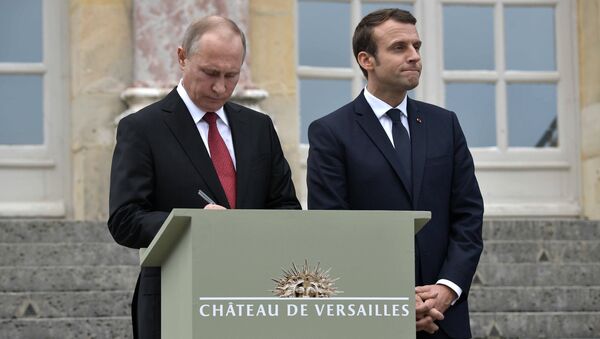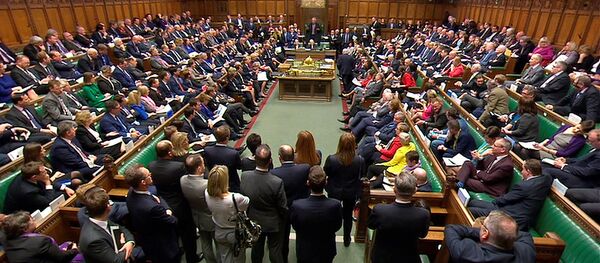Anatoly Torkunov, Rector of the Moscow State Institute of International Relations (MGIMO) and the Co-chairman of the Russian-French forum “Trianon Dialogue,” who attended the opening of the Fair, explained to Sputnik what consequences the Skripal case may have for bilateral relations between Moscow and Paris.
READ MORE: Envoy to OSCE: Russia Never Created Nerve Agent Dubbed Novichok
Commenting on Russia’s request to the UK to provide samples of the alleged substance as well as access to the case materials, Mr. Torkunov said that it was “fair” that Moscow had voiced readiness to cooperate on the investigation, although noted that Russia hasn’t noticed such willingness from their British colleagues yet.
“We see only rudeness… Being a diplomat of conventional beliefs, I was struck by the British Defense Minister’s statement. It is essential to keep your temper in check under any circumstances,” the international relations scholar said.
READ MORE: 'Russia Should Go Away and Shut Up' — UK Defense Minister Gavin Williamson
When asked whether the tense situation had had any impact on the development of the “Trianon Dialogue,” Mr. Torkunov shared that “it would be wrong to say that it hadn’t,” although outlined an optimistic view on the settlement of the crisis.
“Such incidents may happen from time to time, but the important thing is for both sides to work together impartially to find out what happened and why, as well as how to handle this situation, including from the point of view of the countries’ images. By the way, I still do not understand whose image will suffer more – Britain’s or Russia’s. After all, there is no valuable proof, which could possibly link Russian officials with this dramatic incident,” Torkunov elaborated.
Preserving his optimistic views, he also assumed that “common sense” would “prevail” in relations between France and Russia.
“The level of mistrust, which exists between Russia and some Western countries, has approached a ‘red line’ if not to say further. […] Regardless of anything, we must cooperate, we must even be friends, and we must love each other. Only in this case we will survive! There is no other option. Today’s world is so fragile. […] And it is becoming more and more fragile every year, and we will all perish together without joint efforts and mutual understanding…”
On March 15, opening the Paris Book Fair Emmanuel Macron declared that he would avoid the Russian stand, adding that he was keeping in touch with London to decide on “appropriate answers to this aggression on the soil of our British allies.”
Two weeks ago, former Russian spy Sergei Skripal and his daughter Yulia were found unconscious in Salisbury, UK, after allegedly being exposed to a chemical substance, later identified by UK law enforcement officials as the military-grade nerve agent Novichok, allegedly developed in Russia.
While Moscow has denied any involvement in the incident, saying that no research and development work on the Novichok class of nerve agents had taken place in the country, British authorities have accused Moscow of “attempted murder,” although declined Russia’s request to provide samples of the substance used in Salisbury as evidence.
READ MORE: May Heckler Demands 'Clear Evidence' Russia Behind Skripal Poisoning
As a response to the alleged attack, UK Prime Minister Theresa May announced the expulsion of 23 Russian diplomats from the country; Russian Foreign Ministry took reciprocal measures, having declared an equivalent number of British diplomats personae non gratae, and revoked its agreement on the UK General Consulate’s operation in St. Petersburg.
The views expressed in this article are solely those of the speaker and do not necessarily reflect the official position of Sputnik.


